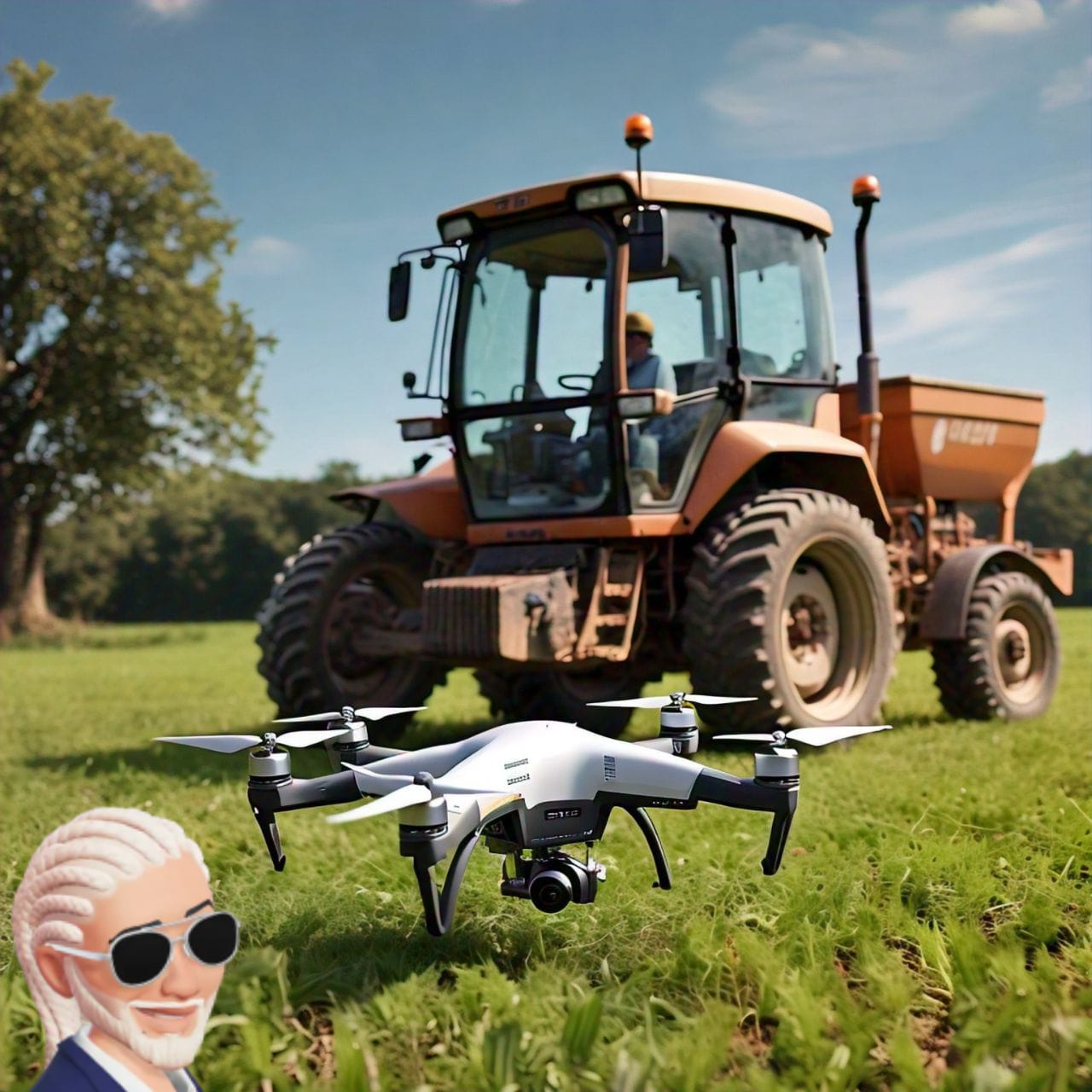The Role of Drones in Modern Farming:
- Get link
- X
- Other Apps
The Role of Drones in Modern Farming: Revolutionizing Crop Monitoring, Soil Analysis, and More
Introduction
The advent of drone technology has brought transformative changes to various industries, and agriculture is no exception. Drones are increasingly becoming an indispensable tool for modern farmers, offering innovative solutions for crop monitoring, soil analysis, and more. This post explores how drones are enhancing farming practices and paving the way for more efficient and sustainable agriculture.
1. Crop Monitoring
a. Real-Time Surveillance: Drones equipped with high-resolution cameras and sensors provide real-time aerial imagery of crops. This bird's-eye view allows farmers to monitor crop health, growth patterns, and field conditions with unparalleled precision.
b. Early Detection of Issues: Using multispectral and thermal imaging, drones can detect issues such as pest infestations, diseases, and nutrient deficiencies before they become severe. Early detection enables timely interventions, minimizing crop loss and optimizing yields.
c. Precision Farming: Drones facilitate precision agriculture by providing detailed maps and data on crop conditions. This information helps farmers apply water, fertilizers, and pesticides more accurately, reducing waste and enhancing productivity.
2. Soil Analysis
a. Mapping Soil Health: Drones can capture detailed aerial images to create soil health maps. By analyzing these images, farmers can identify variations in soil composition, moisture levels, and nutrient content across different field areas.
b. Enhancing Soil Management: With insights from drone data, farmers can implement targeted soil management practices. This approach optimizes soil conditions for crop growth and reduces the need for blanket applications of fertilizers and amendments.
c. Supporting Sustainable Practices: By providing precise soil information, drones support sustainable farming practices. Farmers can make data-driven decisions that minimize environmental impact and promote soil conservation.
3. Precision Agriculture
a. Variable Rate Application: Drones enable variable rate application of inputs such as seeds, fertilizers, and pesticides. By analyzing field data, farmers can apply these inputs at varying rates depending on the specific needs of different field zones.
b. Enhanced Efficiency: The use of drones in precision agriculture reduces the amount of manual labor required and increases the efficiency of farming operations. This technology allows for more accurate and timely application of resources, improving overall farm productivity.
c. Data-Driven Decision Making: Drones collect a wealth of data that can be analyzed to inform decision-making. Farmers can use this data to optimize planting patterns, adjust irrigation schedules, and implement other strategies that enhance crop performance.
4. Future Prospects
a. Advancements in Drone Technology: As drone technology continues to evolve, we can expect even more advanced features and capabilities. Innovations such as AI-powered analysis, improved battery life, and enhanced sensors will further enhance the role of drones in agriculture.
b. Integration with Other Technologies: The integration of drones with other technologies, such as IoT sensors and data analytics platforms, will create a more comprehensive and connected farming ecosystem. This synergy will enable farmers to make more informed decisions and achieve greater efficiencies.
c. Expanding Applications: Beyond crop monitoring and soil analysis, drones are likely to find new applications in areas such as livestock management, irrigation systems, and farm equipment maintenance, further transforming the agricultural landscape.
Conclusion
Drones are revolutionizing modern farming by providing valuable insights into crop health, soil conditions, and more. Their ability to deliver real-time data and support precision agriculture makes them a powerful tool for enhancing productivity, sustainability, and efficiency on the farm. As technology continues to advance, the role of drones in agriculture is set to expand, offering exciting possibilities for the future of farming.
- Get link
- X
- Other Apps


Comments
Post a Comment